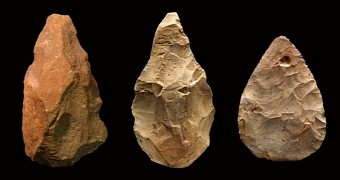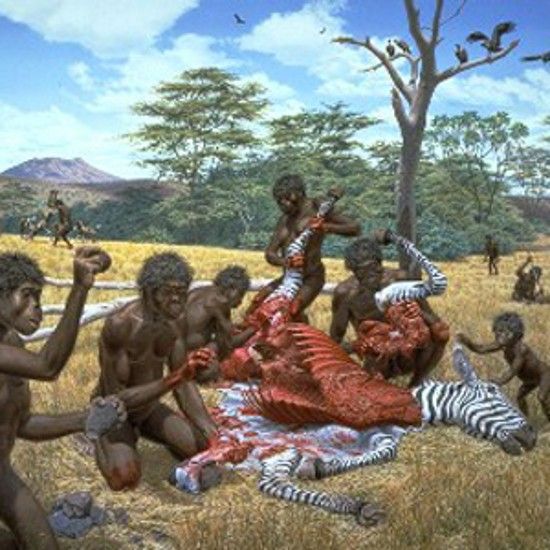Thanks to a whole lot of horror movies that could send even the bravest of the bunch running for the hills, we humans aren't exactly fond of butchering tools in this day and age. Then again, it's not like the chickens we like to turn into spicy strips are their greatest fans either.
The thing is that, as it turns out, we might want to start showing butchering tools a wee more consideration. After all, they helped our ancestors stay alive and made sure that we would emerge as a dominant species, and according to a recent paper, they probably even encouraged the development of human speech.
That's right, scientists now argue that, had it not been for such tools, our ancestors might not have started talking to each other. What this means is that we modern humans might have been left without the languages we so deeply rely on. There would be no more comment battles, no more gossiping, no more anything that involves using words.
What the heck do butchering tools have to do with language?
In a paper in the journal Nature Communications, researchers with the University of California, Berkeley in the US and the Universities of Liverpool and St. Andrews in the UK explain that, according to evidence at hand, our ancestors in the African savanna started using butchering tools about 2.5 million years ago.
These primitive butchering tools were basically rocks crafted into shards that our ancestors used to slice all sorts of animals that they wanted to turn into stew or whatever other dishes appealed to them. Once the first such tools were developed, it took some 700,000 years for this ancient butchering technology to become insanely popular all across the continent.
As detailed in the journal Nature Communications, evidence indicates that, once they got into the habit of using butchering tools to chop game, our ancestors started feeling the urge to better understand each other in order to be able to pass on tips and tricks about how to use one rudimentary meat knife or another. Ultimately, this might have translated into the development of a primitive language.
“Our findings suggest that stone tools weren’t just a product of human evolution, but actually drove it as well, creating the evolutionary advantage necessary for the development of modern human communication and teaching,” said psychology postdoctoral researcher and study lead author Thomas Morgan with the University of California, Berkeley.
The researchers might be right when making these claims
Just to be thorough, specialist Thomas Morgan and colleagues went the extra mile and carried out a series of experiments meant to bring evidence in support of their theory that primitive butchering tools made our ancestors more eager to communicate with one another. As part of these experiments, they asked a group of volunteers to behave like early humans.
Thus, the participants in this study were taught how to make butchering tools by shaping hard rocks. The idea was to determine what the easiest way to pass on this skill was. Not at all surprisingly, the volunteers performed best when spoken communication was part of their lesson. True, imitation and non-verbal presentations or gestures also worked, but not all that great.
“If someone is trying to learn a skill that has lots of subtlety to it, it helps to engage with a teacher and have them correct you. You learn so much faster when someone is telling you what to do,” University of California, Berkeley researcher Thomas Morgan commented on the outcome of this series of experiments.
Mind you, the scientists behind this investigation are not saying that butchering tools are without a doubt the reason our ancestors eventually evolved to use language to better understand one another. What they mean is that, all things considered, chances are that such primitive tools planted the seed for the development of spoken communication.
As Thomas Morgan put it, “To sustain Acheulean [i.e. a tradition of toolmaking of Homo erectus and early Homo sapiens] technology, there must have been some kind of teaching, and maybe even a kind of language, going on, even just a simple proto-language using sounds or gestures for ‘yes’ or ‘no,’ or ‘here’ or ‘there.’”

 14 DAY TRIAL //
14 DAY TRIAL // 

